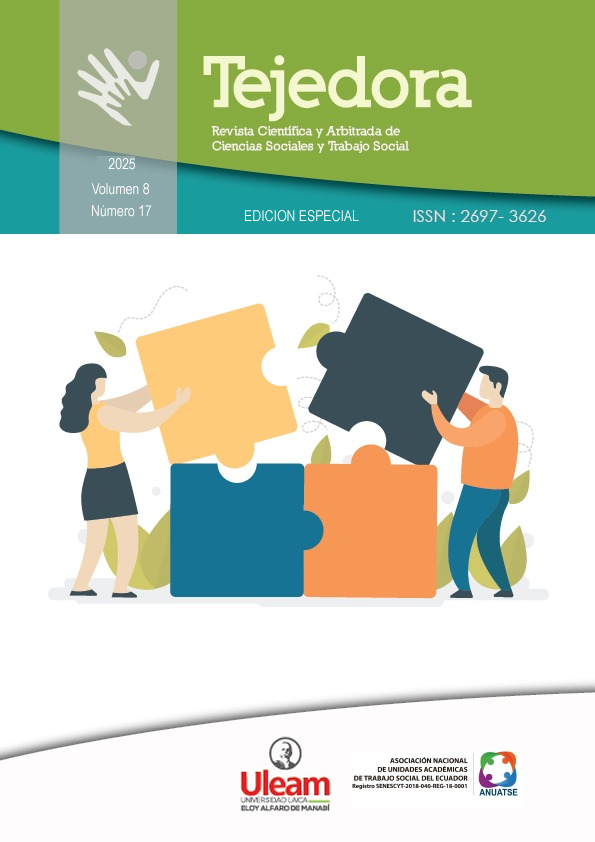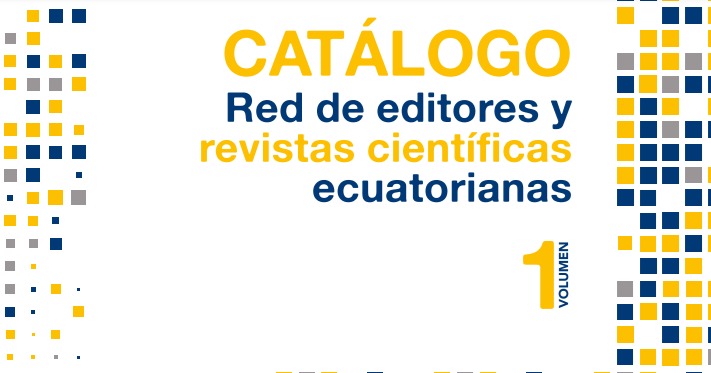PERSPECTIVA DEL EMPRENDEDOR INFORMAL EN EL TURISMO COMUNITARIO DEL CANTÓN SALITRE, PROVINCIA DEL GUAYAS
DOI:
https://doi.org/10.56124/tj.v8i19.031Palabras clave:
informalidad, emprendedor, turismo comunitarioResumen
La informalidad turística en Salitre representa un reto clave para autoridades, empresas y la comunidad, ya que afecta la calidad, competitividad y sostenibilidad del turismo comunitario. Un estudio con 50 emprendedores locales identificó desafíos urgentes: falta de capacitación especializada en gestión empresarial y calidad de servicio, complejidad y costos de los trámites de formalización, y escaso apoyo institucional. También se evidenció la necesidad de fortalecer redes y alianzas entre emprendedores, organizaciones y proveedores para compartir recursos y expandir mercados. Finalmente, se propone implementar campañas de sensibilización y difusión sobre los beneficios de la formalización y el valor del turismo comunitario, tanto local como nacionalmente, para mejorar la visibilidad y el reconocimiento de los emprendedores salitreños.
Descargas
Citas
Dias, Á. S.‐R. (2020). Developing sustainable business models: local knowledge acquisition and tourism lifestyle entrepreneurship. . Journal of Sustainable Tourism, 931 - 950.
Huerta, S., Cortéz, A., Córdova, C., Ortiz, K., & Moya, M. (2024). Emprendimientos inclusivos como aporte en el turismo comunitario del Cantón Salitre, Provincia del Guayas. Polo del conocimiento, 1189-1204 (Edición núm. 92) Vol. 9, No 7.
Mintur. (27 de 05 de 2025). Ministerio de turismo Ecuador. Obtenido de https://servicios.turismo.gob.ec/turismo-en-cifras/balanza-turistica/
Qu, M. M. (2020). Community resourcefulness and partnerships in rural tourism. . Journal of Sustainable Tourism, 2371 - 2390.
Robalino-Villava, G. (27 de 05 de 2025). Repositorio UG. Obtenido de https://repositorio.ug.edu.ec/server/api/core/bitstreams/f2db7720-a9c2-4b64-b3d0-19cd62465f8f/content
• Admin, A., Campoverde, J. L. A., Pintado, R. P. Y., & Arroyo, K. E. R. (2022). Social and community entrepreneurship in the context of changes and crisis in Ecuador. Universidad Ciencia y Tecnología, 26(117), 98-108. https://doi.org/10.47460/uct.v26i117.665
Aquino, R. S. (2022). Community change through tourism social entrepreneurship. Annals of Tourism Research, 95, 103442. https://doi.org/10.1016/j.annals.2022.103442
Derks, M., Bidmon, C., & Ciulli, F. (2024). Circular e-waste ecosystems in necessity-driven contexts: The impact of formal institutional voids. En Business Strategy and the Environment (Vol. 33, Número 4, pp. 3733-3747). John Wiley and Sons Ltd. https://doi.org/10.1002/bse.3652
Huaraca Vera, L., Kang, M., & Echarri Chavez, M. (2021). Turismo comunitario: Del concepto a la gestión. La experiencia ecuatoriana: Community tourism: from concept to management. The ecuadorian experience. REVISTA CIENTÍFICA ECOCIENCIA, 8(6), 1-24. https://doi.org/10.21855/ecociencia.86.570
Huerta Cruz, S. Y. H., Gonzalez-Lovato, C. F. G., Pozo, M. B. M., & Franco, D. J. H. (2022). Estrategias de fortalecimiento basado en la matriz FODA. Caso de estudio de emprendimientos en la zona playera del cantón Salitre, Ecuador. 2022.
Jiménez, D. B., Cruz, V. H., & Conrado, R. (2017). AN ENVIRONMENTAL ANALYSIS FROM THE EDUCATIONAL PERSPEC- TIVE IN ECUADOR.
Leonov, Y., Dangadze, S., Chorna, O., Smentyna, N., & Fialkovska, A. (2024). Examination of strategies and tactics for crisis response in emergency situations. Multidisciplinary Reviews, 7(1), 2024spe018. https://doi.org/10.31893/multirev.2024spe018
Martinović, M. (2024). The API Model of Strategic and Tactical Marketing Thinking for Management Education. International Review of Management and Marketing, 14(6), 87-98. https://doi.org/10.32479/irmm.17099
Ngoasong, M. Z., & Kimbu, A. N. (2016). Informal microfinance institutions and development-led tourism entrepreneurship. Tourism Management, 52, 430-439. https://doi.org/10.1016/j.tourman.2015.07.012
Ortiz Chimbo, K. M., García Viteri, R. A., Huerta Cruz, S., & Sánchez Macías, R. E. (2023). Tourism micro-enterprises, an alternative for the sustainable development of tourism in the Salitre canton, Guayas Province: Nurseries, new undertakings. Journal of Business and Entrepreneurial Studie, 7(3). https://doi.org/10.37956/jbes.v7i3.346
Pérez, C. V., Álvarez, G. V., & Cruz, S. Y. H. (2025). El camino a la publicación de un artículo científico. 1.
Pesántez-Célleri, B. A., Erazo-Álvarez, J. C., Narváez-Zurita, C. I., & Moreno, V. P. (2020). Estrategias de emprendimiento para el turismo comunitario. Revista Arbitrada Interdisciplinaria Koinonía, 5(10), 806. https://doi.org/10.35381/r.k.v5i10.717
Quiñónez Bedón, M. F., Sarzosa Troya, M. C., & Razo Aguilera, S. P. (2024). El turismo comunitario sostenible en Ecuador: Un estudio diagnóstico del impacto de sus modelos. https://doi.org/10.5281/ZENODO.11122077
Sarmiento, L., & Esteban, D. (2019). Comercio informal, factores y políticas para su sostenibilidad caso de estudio, ropa mercado Feria Libre ciudad de Cuenca.
Skokic, V., Lynch, P., & Morrison, A. (2019). Veza: An informal network of tourism entrepreneurs. Annals of Tourism Research, 77, 26-37. https://doi.org/10.1016/j.annals.2019.05.004
Zhang, Y., Xu, H., Jia, R., Yang, H., & Wang, C. (2022). Realizing common prosperity: The action logic of social entrepreneurship community mobilization in rural tourism. Elementa: Science of the Anthropocene, 10(1), 00006. https://doi.org/10.1525/elementa.2022.00006
Zhovnirchyk, Y., Chernov, S., Larina, N., Lukashuk, M., & Antonova, L. (2023). Strategic Planning for the Sustainable Development of Territorial Communities. International Journal of Sustainable Development and Planning, 18(7), 2097-2105. https://doi.org/10.18280/ijsdp.180712
Publicado
Cómo citar
Número
Sección
Licencia
Derechos de autor 2025 Revista Científica y Arbitrada de Ciencias Sociales y Trabajo Social: Tejedora. ISSN: 2697-3626

Esta obra está bajo una licencia internacional Creative Commons Atribución-NoComercial-CompartirIgual 4.0.
























